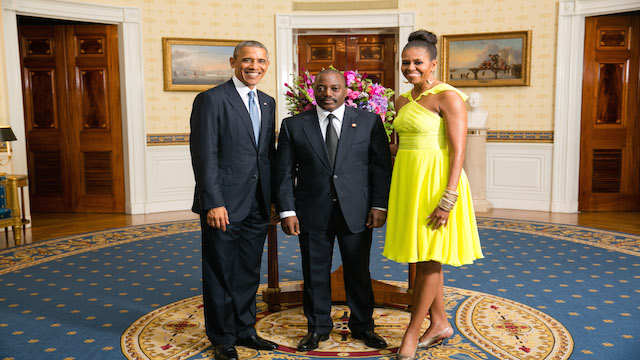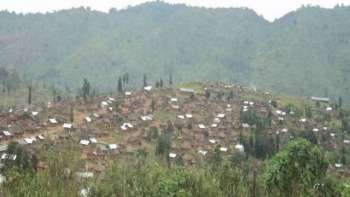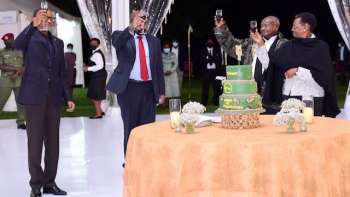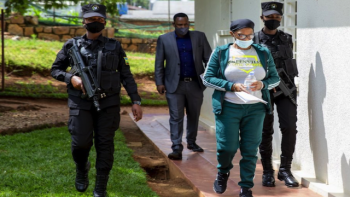On March 31, 2015, US President Obama called President Joseph Kabila of the Democratic Republic of the Congo (DRC). During the call, President Obama and President Kabila discussed several topics ranging from the need for the respect of the constitution, timely, credible and peaceful democratic elections, and the respect of human rights.
Late last year, President Kabila sought to change the Constitution to allow himself for an illegal third term. He backed down when the Congolese
masses took to the streets in December 2014 and January 2015. Since then, he has been accused by the opposition of seeking to undermine the electoral process by putting forward an unreasonable calendar and trying to split the country into artificial provinces that favor his cronies.
That is probably why President Obama insisted on "the importance of timely, credible, and peaceful elections that respect the DRC's constitution and protect the rights of all DRC citizens" and urged President Kabila to protect his "legacy as a leader who brought the DRC out of war" by setting " it on a path of continued democratic progress would be consolidated by free and fair elections in 2016."
However, one of the main points of the dicussion was the on-going beef with the UN Peacekeeping mission in DRC, known as MONUSCO. The divergences between the DRC govenment and MONUSCO erupted when two congolese generals accused of war crimes were appointed to lead military operations against Rwandan rebels, known as Democratic Liberation Forces of Rwanda (FDLR).
The two FARDC generals, Bruno Mandevu and Sikabwe Fall, are accused of having ordered systematic massacres of Rwandan refugees and Congolese civilians during the 2009 military operations, known as Umoja Wetu and Kimia II, against Rwandan rebels. MONUSCO has declined to be involved in FARDC attacks, only saying that it will provide "moral support to the FARDC".
Hence, during the call, President Obama urged President Kabila to resume cooperation between the Armed Forces of the DRC, FARDC, and MONUSCO in operations against the FDLR. A day after, on April 1, 2015, Martin Kobler, the head of MONUSCO, said, upon his return from briefing the UN Security Council in New York and following a tour of MONUSCO troops in North-Kivu Province, that:"military operations led by FARDC have failed to reach its objectives. I came here in Kinshasa with the firm impression that FARDC must regain support from MONUSCO as soon as possible. Unity makes us stronger", before adding that MONUSCO units " are very very strong, have supplies, and are ready to fight alongside FARDC."
The much touted military operations against Rwandan rebels have stalled. FARDC have been unable to force the Rwandan rebels to return to Rwanda. It is expected that the involvment of MONUSCO may not add much, unless other non military solutions are prioritized. Diplomats have been pushing for these diplomatic and negotiated solutions over military operations.
Hence, the involvment of MONUSCO may be more of a political and diplomatic manoeuver to allow MONUSCO to stay well after the 2016 Congolese elections.

















